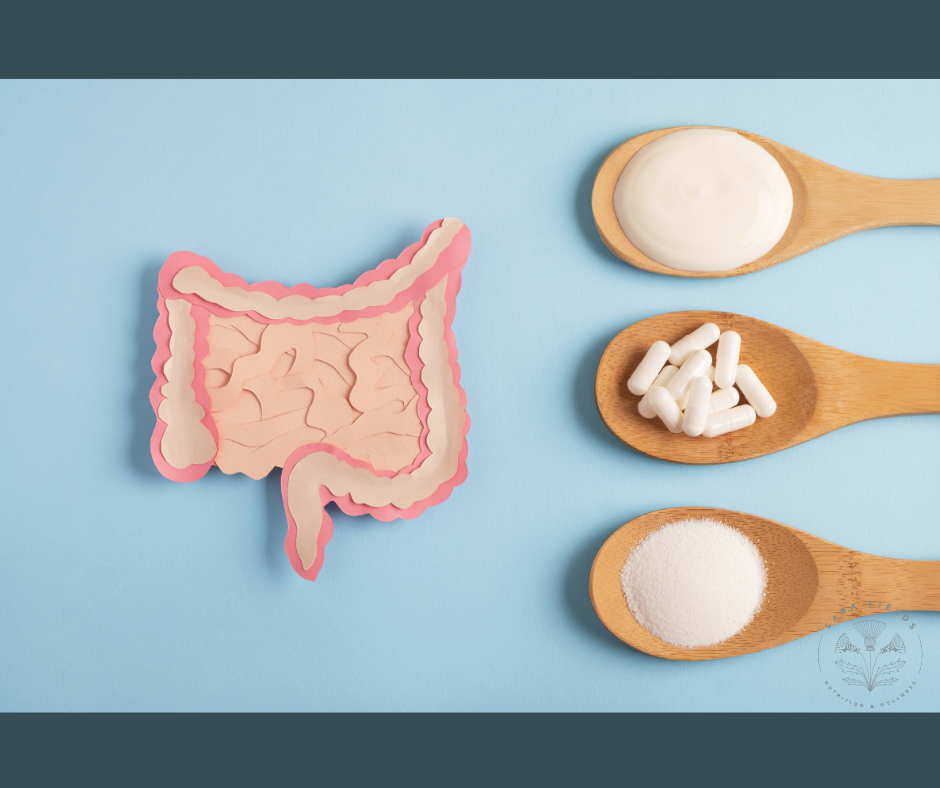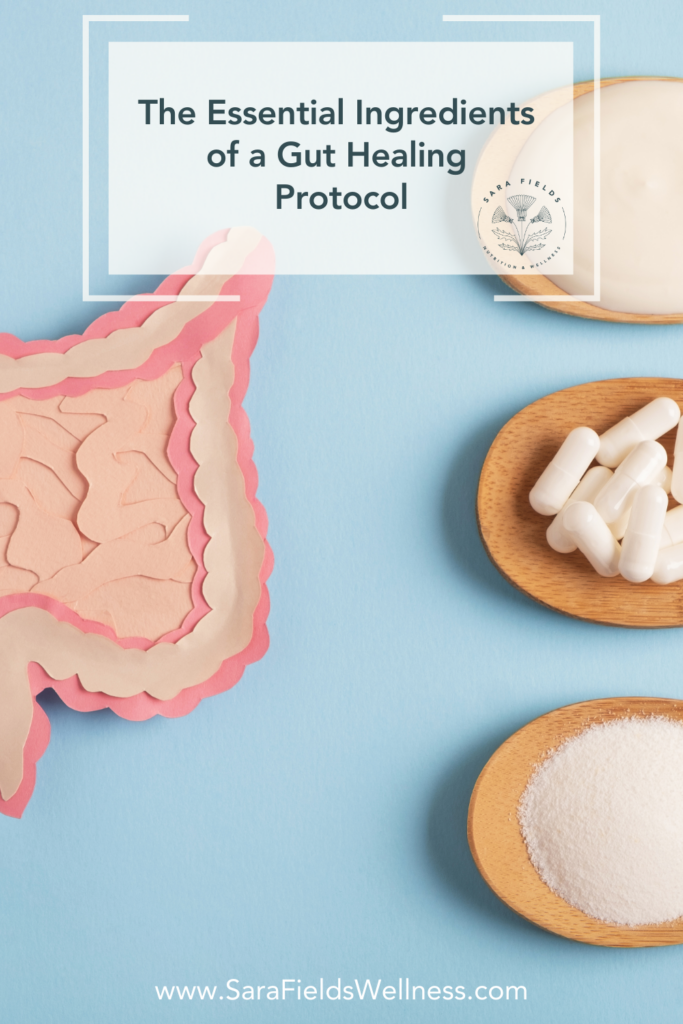
I talk a lot about the “why’s” of gut healing (here and here, for example), but what does “gut healing” even involve anyway?
The truth is that it looks very different person to person, but there are some ingredients that are essential. It’s kind of like a muffin recipe: you can have a million different flavors, but you must include some type of flour, eggs, and milk.
Let’s break it all down!
Here are the core components – those essential muffin ingredients – of an effective strategy to heal your gut:
- Optimizing Digestive Function: Are You Breaking Down Your Food? – This is the foundation of good health. If your body isn’t efficiently breaking down food, you’re not absorbing the nutrients you need, and undigested food can feed harmful bacteria in your gut, leading to overgrowths and damage to the intestinal tissues. It’s critical to ensure that digestive enzymes, stomach acid, and bile are all working effectively, which might involve targeted supplements, dietary adjustments, and stress management techniques.
- Cultivating a Healthy Microbiome: Are There Enough Good Guys? – Your gut is home to a vast community of bacteria, collectively known as the microbiome. These beneficial bacteria are essential for everything from digestion to immune function to mental health, and as such, your microbiome should be balanced and thriving. This might involve adding probiotic foods to your diet, increasing your intake of prebiotic foods that feed good bacteria, and making lifestyle changes that support a healthy gut environment.
- Identifying and Addressing Overgrowths: Are There Any Bad Guys? – Equally important is identifying and eliminating harmful microbes that might be causing damage to your gut. Overgrowths of pathogenic bacteria, yeast, or parasites can lead to inflammation, leaky gut, and systemic issues like joint pain or skin conditions. It’s important to take steps to reduce these harmful microbes, often through dietary changes and antimicrobial supplements.
- Identifying Food Sensitivities: What Foods Are Creating an Immune Response? – It’s interesting because people either believe food sensitivities are all that’s behind their issues, or they believe that it’s only the environment in the gut that’s driving their symptoms and foods don’t matter. The truth is it’s both. Food sensitivities can trigger immune responses that lead to inflammation and gut damage. Identifying any problematic foods and temporarily removing them from the diet is a key piece of the gut healing puzzle, as it allows for a decrease in inflammation and gives the gut the chance to heal.
- Healing and Repairing the Gut: What Does the Intestinal Tissue Need? – Whether you’re dealing with leaky gut, inflammation in your colon, or irritation in the upper GI tract, it’s essential to do some repair work. Often this is accomplished through nourishing foods and supplements proven to restore integrity and function.
Your plan, just like a muffin recipe, needs to include all of these key ingredients. “Comprehensive” is the name of the game.
Let me illustrate…
That parasite that’s causing your bloating and acne is a problem, yes, but it might not have even been able to set up shop in your gut if your digestive function was robust enough. And now that it’s there, it’s caused some damage, so getting rid of it without also doing some repair work isn’t gonna cut it. Basically, those “detoxes”, “cleanses”, and individual supplements billed as a panacea for all your ills – yeah, they’re probably not gonna do the trick.
While these core principles of gut healing remain the same whether we’re focusing on reducing inflammation in an autoimmune condition or addressing microbial overgrowths in skin conditions, an effective protocol isn’t just a set of generic principles or instructions; it’s carefully crafted based on the key factors that are crucial for restoring and maintaining gut health for YOU.
What makes a process truly transformative (what we do at SFNW!) is the combination of those core pieces and advanced assessment tools, such as functional testing and symptom questionnaires, to develop a protocol that is uniquely yours, with every element tailored to your specific situation.

leave a comment